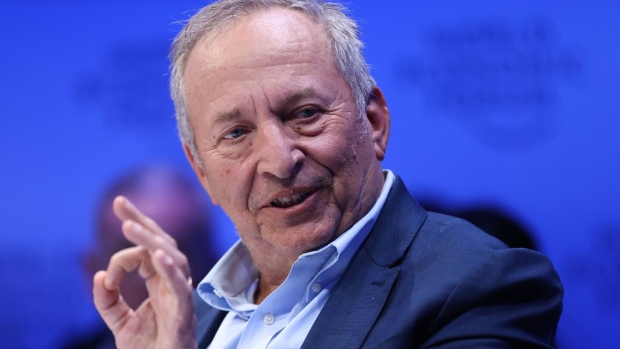Dec 29, 2023
Summers Says Investors Probably Underestimating Inflation Risk
, Bloomberg News

(Bloomberg) -- Former Treasury Secretary Lawrence Summers said investors are probably underestimating inflation risk as markets move swiftly toward expectations for Federal Reserve easing.
“I think there’s still a risk that the market is probably underestimating: that we’re not going to quite make as much progress on inflation as people hope, and that there’s not going to be quite as much room for Fed easing as people hope,” Summers said on Bloomberg Television’s Wall Street Week with David Westin.
Inflation has come down faster this year than Fed officials and outside forecasters anticipated, and futures markets are now priced for more than 1.5 percentage points of interest-rate cuts in 2024.
The central bank’s preferred gauge of underlying inflation rose just 1.9% annualized in the six months through November, marking the first time in more than three years that it came in below the 2% target.
“I’m not really sure we’re a 2%-target-inflation country in any durable sense,” said Summers, a Harvard University professor and paid contributor to Bloomberg TV. He cited federal government wage increases, strike activity, tight labor markets, geopolitical risks and an upturn in home prices as potential sources of inflationary pressures.
“To declare that proverbial ‘soft landing’ to have taken place seems to me to be premature,” Summers said. “I’d certainly say it looks better and more likely than it did six or eight months ago. I always said that soft landings were the triumph of hope over experience, but occasionally hope may triumph over experience.”
Summers also suggested the US will have to ramp up defense spending and increase its focus on national security amid rising global conflict.
“The way in which the United States has conceived itself in terms of national security is no longer viable. We are going to have to invest substantially more in all aspects of national security,” he said.
“That ranges from increased defense spending, well above current projections, to thinking about national security issues as we think about our educational system — as we did after Sputnik — to thinking about our investment in connections all over the world.”
©2023 Bloomberg L.P.


